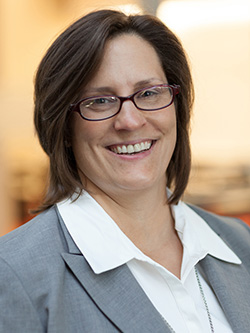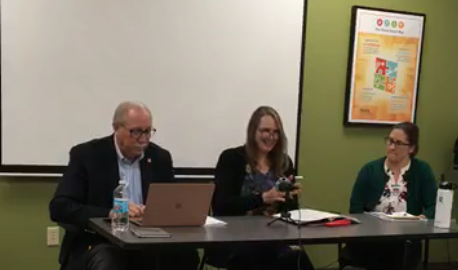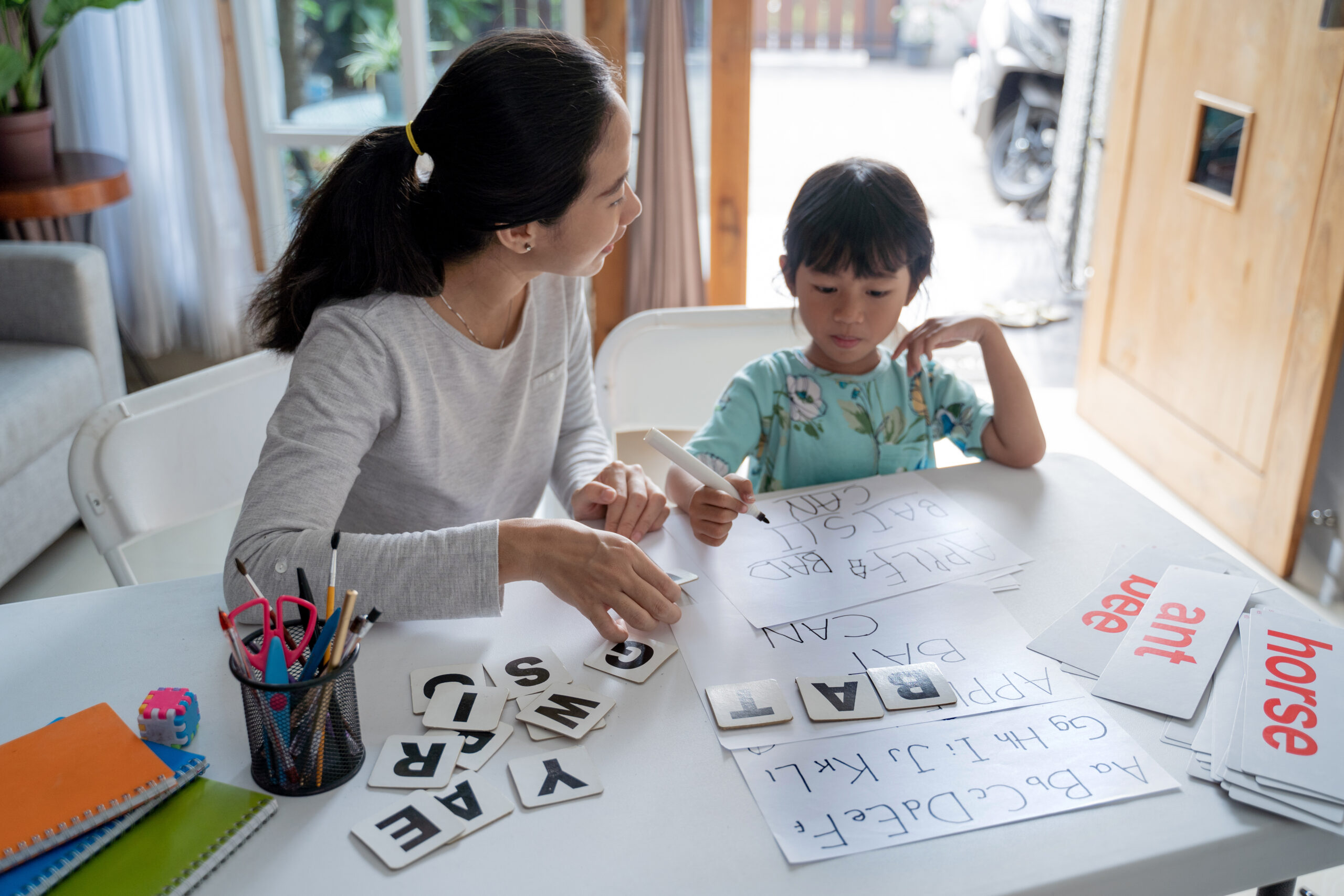By Marie Huey, Public Policy and Advocacy Coordinator
Every year, we gaze into the crystal ball to predict what might be ahead for the legislative session. Nobody ever gets it exactly right, but it’s always a fun exercise.
For this year’s Ann Kaner-Roth Policy Hour: Legislative Session Preview, three early childhood policy professionals joined us to share their thoughts and predictions about the months ahead.
The Players

Valerie Dosland, Director of Government Affairs at Ewald Consulting. She provides government relations and lobbying services to clients in the areas of early childhood and K-12 education. Her clients include Head Start, the Minnesota Community Education Association (MCEA), and the Minnesota Association for Family and Early Education (MNAFEE). She previously worked at the Minnesota House of Representatives as an education consultant on education issues.

Phil Griffin, Senior Government Relations manager at Ewald Consulting. His background is largely in healthcare policy. He is currently the lobbyist for the Minnesota Child Care Association (MCCA), which is a statewide organization representing licensed child care centers.

Debra Fitzpatrick, Policy and Legislative Affairs at Children’s Defense Fund-MN (CDF-MN). Fitzpatrick has an expansive body of work which includes research, teaching, and advocacy. In the public policy realm, she has worked on issues such as women’s economic security and paid family leave. She will officially join CDF later in January.
The Context
Legislators passed a two-year budget last year, so that work is already complete. The November budget forecast indicated a surplus. However, both Dosland and Griffin cautioned that most of the surplus will be used up for other purposes including replenishing budget reserves, paying back money for trust-related taxes, and potentially to cover at least some of the overpayments discovered by the Department of Human Services.
The state will provide an updated budget forecast in February, and that could change the picture as well. Uncertainty at the federal and international level also looms over the state decisions. Legislators are cautioning advocates not to expect much/any additional investment in their causes this year.
One activity legislators usually take on in non-budget years is bonding. Legislators and the governor have indicated they would like to pass a bonding bill, which helps supports roads, bridges, and buildings around the state. Notable this year is that policymakers indicate they would like to allocate somewhere between $1 and $2 billion for bonding, which is more than usual.
The legislature has essentially the same makeup as last year, which means the House is under control of the Democrats, and the Senate is led by Republicans. Leadership in the two bodies have different priorities and approaches. At the end of the day all of their legislation needs to be approved by DFL Governor Tim Walz in order to become law.
Griffin thinks big issues outside of early education that may reemerge this year include insulin costs and marijuana legalization. He predicts continued talks around insulin but no action. Dosland notes that organizations representing schools will likely ask for school safety funding to become permanent, after receiving a one-time sum last session. Fraud and mismanagement at DHS will continue to fuel discussions about Health and Human Services, especially in the Senate. This will be a critical factor in what (if anything) gets done for early care and education.
Election year politics will undoubtedly play a large role in how legislators make their decisions. Because nothing has to pass this year, it’s possible that nothing will, according to Dosland. All members of the state legislature are up for election in November, and current members continue to announce their decisions to retire. Here’s a helpful tool to track who’s running.
The Priorities
Presenters shared what they will be working on this legislative session.

Minnesota Child Care Association (MCCA)
Minnesota is still out of compliance with federal requirements around the Child Care Development Block Grant (CCDBG). In order to meet the requirements, the state must increase provider reimbursements rates for the Child Care Assistance Program (CCAP). MCCA will be working with others to support full federal conformity again this year.
MCCA will propose a tax credit for child care providers. They proposed a similar provision last year. In addition, the organization will support funding more early learning scholarships for children 0-3. They also hope to introduce a bill that would require DHS to revise Rule 3, the set of requirements that child care centers must follow.
Minnesota Head Start Association
Similar to other early childhood settings, Head Start continues to struggle to find and retain qualified educators. They will continue to work with The Coalition to Increase Teachers of Color and American Indian Teachers in Minnesota to advance legislation to support the workforce, including Grow Your Own programs. Head Start would also like to see bonding funds to improve and expand early childhood facilities.
Minnesota Community Education Association (MCEA), and the Minnesota Association for Family and Early Education (MNAFEE)
These groups will continue to ask questions about proposals that came up last year if they reemerge. From a bill requiring teacher licensure to one that prohibited expulsion of preschool students, MCEA and MNAFEE are not opposed to policy changes, but want clarification on details and impact on their members.
Children’s Defense Fund-MN (CDF)
Like MCCA, CDF will also work toward federal compliance related to CCAP. The would also like to see more funding for the program and forecasting for the waitlist, so that every eligible child would receive funding. CDF will work with others to continue to try to advance Paid Family and Medical Leave, though Ftizpatrick noted its chances of passing are slim. The Minnesota Family Investment Program (MFIP), took a step forward last year with an increase to the monthly amount, but CDF would like to see further improvements to the program. Tax credits for working families are also on their agenda. CDF will continue to support implementation of the Community Solutions Fund which passed last year. Request for Proposals are open now through February 7.
Final Thoughts
The landscape of early care and education advocates will be different this year. The state recently received a Preschool Development Grant Birth to Five, which will guide some state agency work and coordination. After seven years of advocacy, The MinneMinds Coalition announced it will sunset. The Governor’s Children’s Cabinet is moving forward but still fairly new. However, the child care shortage continues to affect people around the state—parents, early childhood educators, and businesses alike. People may feel some urgency to take action on that issue. Or, of course, nothing could happen.
Stay tuned as the session plays out. Get involved by sharing your early childhood education story. Save the date to attend Advocacy for Children Day on March 26. We’ll meet you back here in June to figure out what did or didn’t happen.








